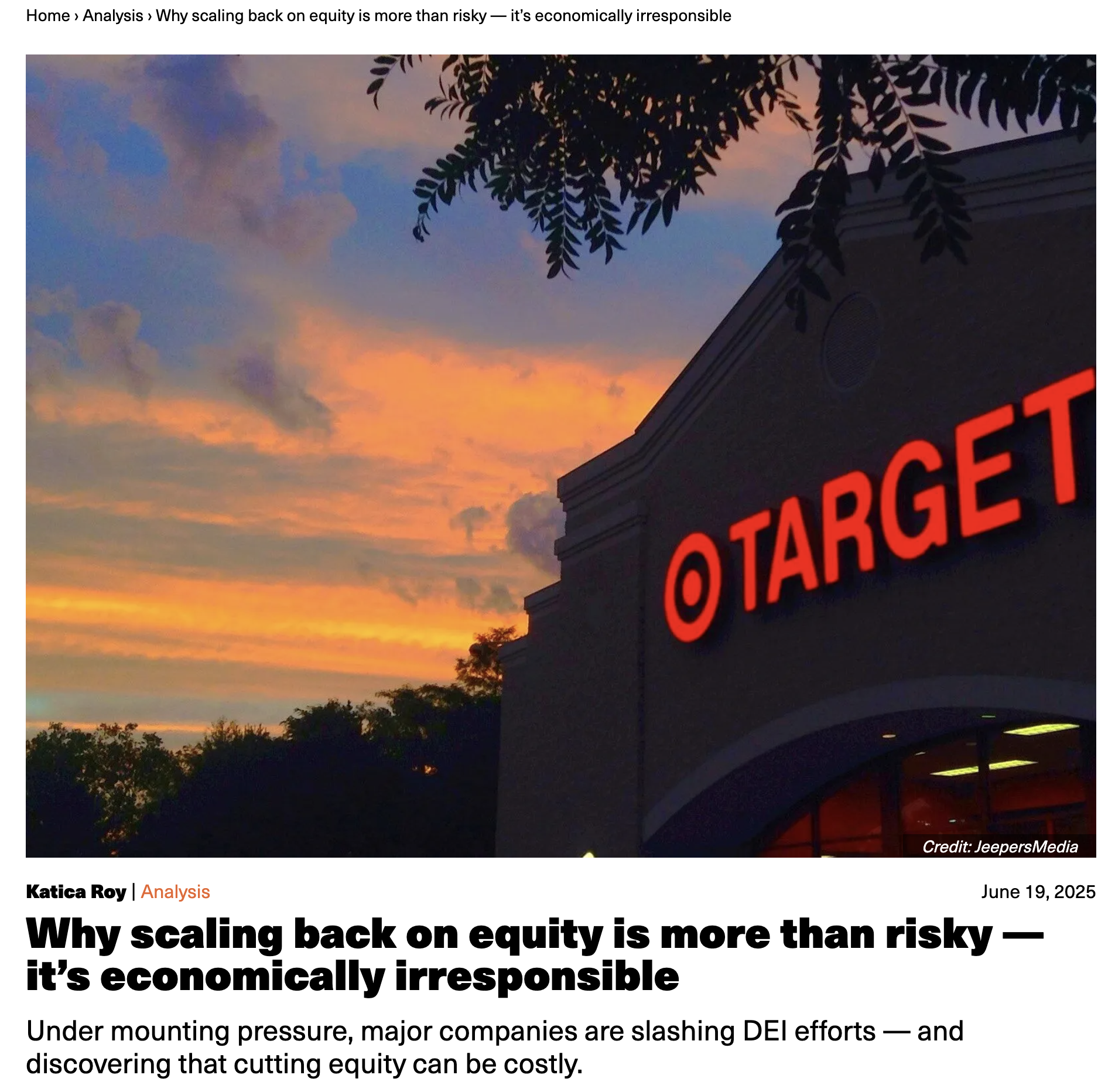Scaling back on equity is economically irresponsible

You have to read this excellent article at Design Observer by Katica Roy. LINK HERE and below, I'm going to pull stats and add my own commentary.
Cutting Equity Isn’t Just Regressive — It’s Economically Irresponsible
Let’s make one thing clear: equity is not a political gesture. It is an economic strategy. Yet under pressure from backlash culture and weaponized fragility, companies are retreating from their DEI (diversity, equity, inclusion) commitments, revealing just how deeply the system of white supremacy still governs our economic logic.
In 2025, when Target walked back on its equity initiatives, the market responded — and not kindly. A 40-day boycott organized by civil rights and faith leaders led to a 6.8% drop in store traffic and a 32.17% decline in stock, bleeding $19 billion from their market cap. That’s not cancel culture — that’s accountability economics.
Across industries, a disturbing trend is emerging. Since 2023, major corporations like Meta, Goldman Sachs, Google, and Disney have quietly slashed DEI teams, rebranded equity programs, and abandoned public commitments. A January 2025 survey found that 1 in 8 U.S. companies plan to scale back or eliminate DEI programs altogether. Let’s be real: this is not neutral. This is strategic regression cloaked as corporate prudence.
But here’s the economic truth the anti-DEI, anti-growth status quo doesn’t want you to know:
- A 10% increase in intersectional gender equity results in a 1–2% revenue increase
Companies with high leadership diversity earn 19% more from new products - Companies with high leadership diversity earn 19% more from new products
- Organizations with inclusive practices generate 45% of their revenue from innovation — compared to just 26% for less diverse firms.
- Inclusive teams outperform homogeneous ones 87% of the time in decision-making
- Firms in the top quartile for gender diversity are 25% more likely to outperform in profitability; for racial diversity, it’s 36%.
- Inclusive teams have 78% lower absenteeism, and boost retention by 22%.
Do you still think equity is a risk?
What these numbers expose is what communities of the global majority have always known: exclusion isn’t just unethical — it’s inefficient. It drains creativity, stifles innovation, and sabotages growth. The system of white supremacy, rooted in colonial capitalism, conditions organizations to center whiteness, maleness, and conformity — but it is this very sameness that limits vision, narrows markets, and weakens resilience.
Scaling back on equity is not just about failing people — it’s about failing the future.
So when corporations retreat from equity, they’re not just caving to politics — they’re gambling with the very engine of their economic sustainability. The question is not whether DEI is good business. The question is whether today’s business leaders have the courage to evolve beyond a system that was never designed to include all of us in the first place.
Justice isn’t charity. Inclusion isn’t optics. Equity is infrastructure. And abandoning it? That’s not just irresponsible. It’s reckless.
To show your commitment, license one of our DEI courses for your organization
Special pricing is available when you license for your group, team, school, university or corporation.
Special pricing is available when you license for your group, team, school, university or corporation.
SunShower Learning is experienced in helping large and small organizations integrate eLearning courses into training systems.

